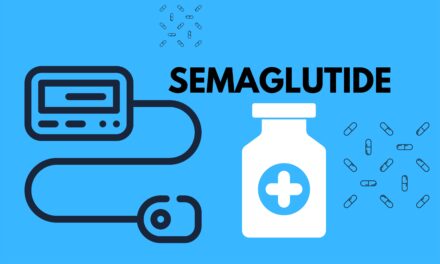Today’s early morning highlights from the major news organizations.
KFF Health News:
CDC Faces Dilemma Over Recommending New Covid Booster For All
A small percentage of Americans got the most recent covid-19 booster shot, and even fewer probably realize the federal government is preparing to recommend yet another shot as early as Tuesday. Until a week or two ago, William Schaffner read that indifference as a sign the Centers for Disease Control and Prevention should advocate vaccinating only those most at risk from the virus. (Allen, 9/11)
KFF Health News:
A Father Dreamed Of A Home For His Family. Medical Debt Nearly Pushed Them Onto The Streets.
Kayce Atencio used to be haunted by a thought while working at a homeless shelter in downtown Denver. “It could have been me,” said Atencio, 30, who lives in a small apartment with his son and daughter not far from the shelter. It nearly was. Atencio and his children for years slept on friends’ couches or stayed with family, unable to rent an apartment because of poor credit. A big reason, he said, was medical debt. (Levey, 9/11)
KFF Health News:
Montana State Officials Seek More Control Over Judicial Involuntary Commitments
Inside the white-brick hallways of the Flathead County Detention Center, Jail Commander Jen Root walked up to a steel door with a small window and pointed inside. “She’s been here almost a year, just laying on her bed,” she said. Inside the cell, dimly lit by a single window, a woman was curled up under a fleece blanket, only her bright-pink fingernails sticking out. This woman was charged with burglary in September 2022, Root said. An evaluation after her arrest determined that mental illness prevented her from standing trial and that she required treatment at the Montana State Hospital, the state-run inpatient psychiatric hospital. (Bolton, 9/11)
KFF Health News:
Journalists Recap How Smallpox Was Wiped Out And How Opioid Settlement Cash Is Being Paid Out
Céline Gounder, KFF Health News’ senior fellow and editor-at-large for public health, discussed the podcast “Epidemic: Eradicating Smallpox” podcast on NPR’s “Shortwave” on Aug. 30. Gounder also discussed new covid variants, vaccines, and the new season of the “Epidemic: Eradicating Smallpox” podcast on Lemonada Media’s “In the Bubble With Andy Slavitt” on Aug. 23. … KFF Health News senior correspondent Aneri Pattani discussed the latest developments in opioid settlement funds being distributed across the country on WFAE’s “Charlotte Talks With Mike Collins” on Aug. 30. (9/9)
New York Post:
Total Number Of FDNY Members Who’ve Died From A 9/11-Related Illness Nearly Equals How Many Died At Ground Zero: Officials
A heartbreaking milestone haunts this year’s 9/11 anniversary — 341 FDNY members have now died of Ground Zero-related illnesses, nearly equaling the death toll for city smoke eaters that perished in the 2001 terror attack. (Andrews and Burke, 9/8)
Fox News:
New York Announces Two 9/11 Victims Identified 22 Years After Attack
Two victims recovered from the 9/11 attack on the World Trade Center in 2001 have been identified 22 years after the deadly terrorist plot, New York officials said in a Friday release. The man and woman, whose names are being withheld at the request of their families, are the 1,648th and 1,649th victims to be identified, Mayor Eric Adams and New York City Chief Medical Examiner Dr. Jason Graham announced. The victims were identified using advanced DNA testing of their remains, including recently adopted next-generation sequencing technology, which has been used to identify missing U.S. service members and the victims of the Maui wildfires. (Stimson, 9/8)
NorthJersey.com:
NJ Doctor Thinks Three Of His Myeloma Patients Are 9/11 Victims
Three weeks after the terrorist attacks on 9/11, Jerry Vanderberg returned to his brokerage firm across the street from the still-smoldering pile at Ground Zero and spent days sifting through office documents caked in the fine dust from the fallen Twin Towers. Nine years later, when he was diagnosed with multiple myeloma, a rare blood cancer. … But Dr. David Siegel, a myeloma specialist at Hackensack University Medical Center, believes that exposure to 9/11 fumes and dust caused Vanderberg and two of his other patients to develop the disease. (Fallon, 9/11)
CBS News:
They Responded To 9/11 As Officers, Now They Treat Those Who Stood Beside Them
Two retired NYPD sergeants, now health care providers, continue to see health challenges among first responders more than two decades after the terrorist attacks. (Zubrow, 9/10)
Fox News:
On 9/11, Embrace Grief To Honor Loved Ones, Experts Suggest: ‘Grief Connects Us With All Of Humanity’
Mental health experts share insights and tips for handling grief — and shed new light on the “five stages of grief.” (Sudhakar, 9/9)
Reuters:
Biden Administration Takes Abortion-Pill Dispute To US Supreme Court
President Joe Biden’s administration took its battle to preserve broad access to the abortion pill mifepristone to the U.S. Supreme Court on Friday as it appealed a lower court’s ruling that would curb how the drug is delivered and distributed. The Justice Department said it filed its appeal of an August decision by the New Orleans-based 5th U.S. Circuit Court of Appeals that would bar telemedicine prescriptions and shipments of mifepristone by mail. The drug’s manufacturer, Danco Laboratories, also said it filed its appeal on Friday. (Chung, 9/8)
Stat:
NIH Nominee Bertagnolli Will Get October Confirmation Hearing
Sen. Bernie Sanders (I-Vt.) will hold a confirmation hearing next month for Monica Bertagnolli, President Biden’s nominee to run the National Institutes of Health, he said Friday. Sanders, whose health committee oversees the confirmation of the NIH nominee, had refused to hold a hearing on Bertagnolli until the Biden administration promised more drug pricing reform. (Wilkerson, 9/8)
Axios:
Presidential Advisers Recommend White House Create Patient Safety Team
The White House should create a national patient safety team to help reduce high levels of dangerous care in the medical system, presidential advisers recommended Thursday. Progress in addressing preventable harms like medication errors and hospital-acquired infections has been “unacceptably slow,” necessitating a White House-led initiative to improve patient safety, the President’s Council of Advisors on Science and Technology wrote in a report. (Goldman, 9/8)
Reuters:
US CDC Says Existing Antibodies Can Work Against New COVID Variant
Early research data has shown that antibodies produced by prior infection or existing vaccines against the coronavirus were sufficient to protect against the new BA.2.86 variant, the U.S. Centers for Disease Control and Prevention (CDC) said on Friday. (9/8)
AP:
Updated COVID Shots Are Coming. They’re Part Of A Trio Of Vaccines To Block Fall Viruses
Updated COVID-19 vaccines are coming soon, just in time to pair them with flu shots. And this fall, the first vaccines for another scary virus called RSV are rolling out to older adults and pregnant women. Doctors hope enough people get vaccinated to help avert another “tripledemic” like last year when hospitals were overwhelmed with an early flu season, an onslaught of RSV, or respiratory syncytial virus, and yet another winter coronavirus surge. (Neergaard, 9/9)
CIDRAP:
Given Together, COVID And Flu Vaccines Appear Safe, Immune-Boosting
COVID-19 and influenza vaccines can be safety administered together, with no significant drop in antibody response, according to a study led by Sheba Medical Center researchers in Israel. The research, published today in JAMA Network Open, involved healthcare workers (HCWs) who received Abbott’s Influvac Tetra (four-strain) flu vaccine, the bivalent (two-strain) COVID-19 booster from Pfizer/BioNTech, or both (one in each arm), from September 2022 to January 2023. (Van Beusekom, 9/8)
CIDRAP:
Smart People First In Line For COVID-19 Vaccines, Study Suggests
Intelligent people get their COVID-19 vaccines much faster, suggests a study of more than 750,000 people in Sweden published in the Journal of Health Economics. … A total of 80% of the most intelligent people were vaccinated within 40 days of vaccine availability, while it took 180 days for those with the lowest cognitive ability to reach that level. The results, the researchers said, suggest that the complexity of the vaccination decision may make it difficult for people with lower cognitive abilities to understand the benefits of vaccination. (Van Beusekom, 9/8)
Boston Herald:
A Pre-Pandemic Infection Could Explain Why Some Patients Develop Long COVID
The researchers from Brigham and Women’s Hospital and Massachusetts General Hospital teamed up with experts in immunology and virology to look for clues about long COVID in blood samples from patients with autoimmune rheumatic diseases. The team found that among these patients, those who developed long COVID were more likely to have expanded, pro-inflammatory antibodies specific to a coronavirus that causes the common cold. (Sobey, 9/8)
Politico:
Anthony Fauci: We ‘Need To Be Prepared’ For Likely Covid Uptick This Winter
Dr. Anthony Fauci, the former top infectious disease expert in the U.S., isn’t sounding alarm bells on the rising number of coronavirus cases in the U.S. yet, but he did caution that the trend will continue into the fall and winter months. “I wouldn’t say that I’m alarmed but I’m certainly keeping an eye on it,” Fauci said on ABC’s “This Week” on Sunday. The former head of the National Institute of Allergy and Infectious Diseases is now a professor at Georgetown University. (Garrity, 9/10)
Politico:
‘We Would’ve Done Everything Differently’: Newsom Reflects On Covid Approach
Gov. Gavin Newsom said criticism of California’s tough Covid-19 restrictions was valid and he would have taken an entirely different approach, given what he knows now about the pandemic. “I think we would’ve done everything differently,” Newsom said in a taped interview set to air on NBC’s “Meet the Press” Sunday. (Cadelago, 9/10)
AP:
New Jersey Leaders Agree With U.S. That Veterans Homes Need To Be Fixed, But How Isn’t Clear
New Jersey’s leaders appear to agree with Justice Department findings that state-run veterans homes failed residents during COVID-19 and continue to violate their constitutional rights, but there’s little clarity on how exactly they’ll address the issues. The Democrat-led Legislature and Democratic Gov. Phil Murphy gave the strongest indications yet that they’ll be addressing the problems highlighted in the report. (Catalini, 9/8)
CIDRAP:
UK Reports Nursing Home COVID Outbreak Involving BA.2.86 Variant
In a technical briefing on SARS-CoV-2 variants today, the UK Health Security Agency (HSA) revealed that, of 34 confirmed involving the highly mutated BA.2.86 variant, 28 were from a single outbreak at a nursing home, an early sign that it can spread in close-contact settings. (Schnirring, 9/8)
Modern Healthcare:
Telehealth In Schools Faces Uncertainty As COVID-19 Funding Ends
Mental health startups are opting for a business model that starts in school. Elementary school. A growing number of mental telehealth companies are offering their services to school-age children by working with local schools. Many received federal COVID-19 pandemic relief funds, but with usage of this money set to expire, companies are looking to prove their value to cash-strapped school districts. (Turner, 9/8)
The Washington Post:
U.S.-Funded Hunt For Rare Viruses Halted Amid Risk Concerns
The Biden administration has halted funding for a research program that sought to discover and catalogue thousands of exotic pathogens from around the world, officials confirmed Thursday, effectively ending a controversial virus-hunting endeavor that opponents say raised the risk of an accidental outbreak. The U.S. Agency for International Development quietly notified the program’s main contractor in July that the $125 million project was being terminated less than two years after its inception, amid opposition from lawmakers as well as a number of prominent scientists and public health experts. (Warrick, 9/7)
Axios:
Biden Admin Wants Employers To Make Opioid Overdose Reversal Drug Available
The Biden administration is urging employers to keep the opioid overdose reversal drug naloxone on hand, comparing it to workplaces preparing emergency plans in case of a fire. Narcan, a nasal spray version of naloxone, became available over-the-counter at major retailers for the first time this week amid record levels of overdoses from increasingly lethal forms of opioids like fentanyl. (Reed, 9/10)
Roll Call:
With Naloxone Now More Available, HHS Officials Tout Its Use
During the same week that naloxone — a nasal spray that reverses opioid overdoses — became available for purchase without a prescription, the nation’s top substance use officials called for greater availability and training for the drug, with five federal officials receiving training to administer it during a public demonstration at Health and Human Services headquarters Friday. (Raman, 9/8)
Axios:
The Politicization Of The Fentanyl Crisis
The country’s fentanyl crisis has become a potent political weapon, reflecting its deep and emotional impact on millions of Americans. The opioid epidemic was once a rare topic that brought Republicans and Democrats together. But even as overdose deaths continue to climb, the discourse around fentanyl has become more politicized and, at times, less aligned with reality — especially when Republicans talk about its connection to the U.S.-Mexico border. (Owens, 9/11)
The Wall Street Journal:
Big Pharma’s Battle With The Biden Administration Could Have Legs
Investors haven’t been taking pharma’s legal effort against President Biden’s drug pricing policy too seriously: When Merck became the first of several entities to sue the U.S. government this summer, its stock was among the worst large-cap laggards that day. But as the industry unleashes a torrent of legal action in federal courts across the country—with Novartis becoming the latest company to join the fray—investors should be paying closer attention as surprises could be in store. (Wainer, 9/9)
Stat:
ALS Advocates Say Criticism Of New Drugs Misses Bigger Picture
A diagnosis of ALS has long been seen as a death sentence. But in recent years, progress in the world of ALS research and drug development has come to embody a conundrum with far broader implications: The balance between moving aggressively on promising new cures and guarding against false hope. (Facher, 9/8)
NBC News:
After His Suicide, A Man’s Family Wants A Warning Label On Ozempic
On the morning of May 14, Anthony died by suicide at his home in Indiana. Although he had experienced depression in the past, his family was shocked by his death and attributes it to Ozempic. … In the United States, the Food and Drug Administration’s adverse event reporting system, or FAERS, had received 59 reports of suicidal ideation, six reports of suicide attempts and four reports of suicide related to Ozempic as of June 30. Wegovy — which carries a warning about suicidal thoughts — had six reports of suicidal ideation and no reports of suicide or suicide attempts. (Bendix, 9/10)
Los Angeles Times:
Kaiser Agrees To $49-Million Settlement For Illegal Disposal Of Hazardous Waste, Protected Patient Information
Kaiser Permanente agreed to $49 million in settlement after an investigation by the California attorney general and six different district attorney offices found that the healthcare giant illegally disposed of hazardous medical waste and protected patient information in unsecured dumpsters. State Atty. Gen. Rob Bonta announced the settlement on Friday that also requires that Kaiser take significant steps to prevent future unlawful dumping. (San Román, 9/9)
Reuters:
Meta Platforms Must Face Medical Privacy Class Action
A U.S. federal judge said Meta Platforms must face a lawsuit claiming that it violated the medical privacy of patients who were treated by hospitals and other healthcare providers that used its Meta Pixel tracking tool. U.S. District Judge William Orrick in San Francisco said the plaintiffs could pursue claims that Meta violated a federal wiretap law and a California privacy law, and violated its own contractual promises governing user privacy on Facebook. (Stempel, 9/8)
CNBC:
Meta’s VR Technology Is Helping To Train Surgeons And Treat Patients
Just days before assisting in his first major shoulder-replacement surgery last year, Dr. Jake Shine strapped on a virtual reality headset and got to work. As a third-year orthopedics resident at Kettering Health Dayton in Ohio, Shine was standing in the medical center’s designated VR lab with his attending physician, who would oversee the procedure. Both doctors were wearing Meta Quest 2 headsets as they walked through a 3D simulation of the surgery. (Capoot, 9/9)
Stat:
Private Equity Could Exacerbate Cardiology’s Overuse Problem, Experts Fear
Coronary stenting is, by some measures, the most overused procedure in hospitals. The problem costs the health system millions and unnecessarily exposes patients to risks of blood clots, torn arteries, infections, and other life-threatening injuries. (Bannow, 9/11)
Stateline:
You Might Need An Ambulance, But Your State Might Not See It As ‘Essential’
Most states don’t declare emergency medical services (EMS) to be an “essential service,” meaning the state government isn’t required to provide or fund them. Now, though, a growing number of states are taking interest in recognizing ambulance services as essential — a long-awaited move for EMS agencies and professionals in the field, who say they hope to see more states follow through. Experts say the momentum might be driven by the pandemic, a decline in volunteerism and the rural health care shortage. (Hassanein, 9/11)
Modern Healthcare:
Michigan Blue Cross To Cut Prior Authorization Requirements By 20%
Blue Cross Blue Shield of Michigan will eliminate 20% of prior authorization requirements, joining big players such as UnitedHealth Group and Cigna in responding to complaints about what providers characterize as an increasing burden, the company announced Thursday. … The health insurance company holds a 68% commercial plan market share in Michigan, which the American Medical Association deems the second-least-competitive insurance market in the U.S. (Tepper, 9/8)
AP:
Voters In North Carolina Tribe Back Adult Use Of Marijuana In Referendum
Members of the Eastern Band of Cherokee Indians have backed overwhelmingly the adult use of marijuana on their tribal land, even as they await the opening of a dispensary for those who seek it for medicinal use. Unofficial results show that 70% of voters said “yes” Thursday in a referendum that opens the door to the western North Carolina reservation being the first location in the state where pot for recreational use can be legally purchased, news outlets reported. (9/8)
San Francisco Chronicle:
Bay Area County Rolls Out New Help To Pay For Prescription Drug Costs
County officials have announced they are widening eligibility for the program, called MedAssist, begun last year to help middle-income earners pay for diabetes medications, EpiPens and asthma inhalers. It gives enrollees checks or direct deposits of $34 to $500 a month, with the amount depending on income, annual health care spending and medications. … The program and its expansion helps fill a growing need as Americans struggle to shoulder the rising costs of prescription drugs. (Ho, 9/8)
Stat:
Obesity-Related Cardiovascular Deaths Tripled In Last Two Decades
Heart disease is killing fewer Americans overall, however, cardiovascular deaths where obesity was listed as a key contributing factor have tripled between 1999 and 2020, according to a new study published Wednesday in the Journal of the American Heart Association. And, Black women had the highest mortality rate out of all the population groups studied. (Balthazar, 9/8)
CIDRAP:
CDC: More Than 2 Dozen Hikers Sickened With Norovirus On Pacific Crest Trail In 2022
Today in Morbidity and Mortality Weekly Report authors published accounts of at least 27 cases of acute gastroenteritis (AGE) reported among hikers of the Pacific Crest Trail in August and September of 2022, suggesting a possible norovirus outbreak that sickened hikers who shared latrines and a cabin. (Soucheray, 9/8)
NPR:
Fostering Friendship To Chip Away At The ‘Epidemic Of Loneliness’
A growing body of research shows loneliness has profound implications for physical and mental health. People who are socially disconnected have a 29% higher risk of heart disease, a 32% greater risk of stroke and a 50% increased risk of dementia for older adults. Loneliness can increase the risk of premature death as much as smoking 15 cigarettes a day, according to a recent advisory from the U.S. Surgeon General Vivek Murthy’s office. The country is contending with an “epidemic of loneliness,” according to that report — and the medicine to treat the problem is social connection. (Dayal McCluskey, 9/11)
AP:
Rocks, Insects, Plastic And Other Foreign Objects Often End Up In Our Food. Here’s How It Happens
Food safety experts and federal agencies use the terms “extraneous” or “foreign” materials to describe things like metal fragments, rubber gaskets and bits of bugs that somehow make it into packaged goods. “Extraneous materials” triggered nine recalls in 2022 of more than 477,000 pounds of food regulated by the U.S. Department of Agriculture’s Food Safety and Inspection Service — triple the number of recalls tied to food contaminated with toxic E. coli bacteria. (Aleccia, 9/10)
The Washington Post:
Big Babies Are More Likely To Grow Up To Have Big Babies, Study Finds
Parents who were big babies are likelier to have children with high birth weights, new research from Norway suggests. In an analysis published in Paediatric and Perinatal Epidemiology, researchers link parental birth weight to that of their children. (Blakemore, 9/9)
AP:
Dr. Richard Moriarty, Who Helped Create ‘Mr. Yuk’ Poison Warning For Kids, Dies At 83
Dr. Richard W. Moriarty, a retired pediatrician from Pittsburgh who helped create the bright green Mr. Yuk sticker that warns kids away from poisonous substances, has died. He was 83. … Moriarty was involved in establishing and developing the Pittsburgh Poison Center, where he served as director. (9/8)
AP:
Afghanistan Is The Fastest-Growing Maker Of Methamphetamine, UN Drug Agency Says
Afghanistan is the world’s fastest-growing maker of methamphetamine, a report from the United Nations drug agency said Sunday. The country is also a major opium producer and heroin source, even though the Taliban declared a war on narcotics after they returned to power in August 2021. The United Nations’ Office on Drugs and Crimes, which published the report, said meth in Afghanistan is mostly made from legally available substances or extracted from the ephedra plant, which grows in the wild. (Butt, 9/10)
This is part of the Morning Briefing, a summary of health policy coverage from major news organizations. Sign up for an email subscription.





